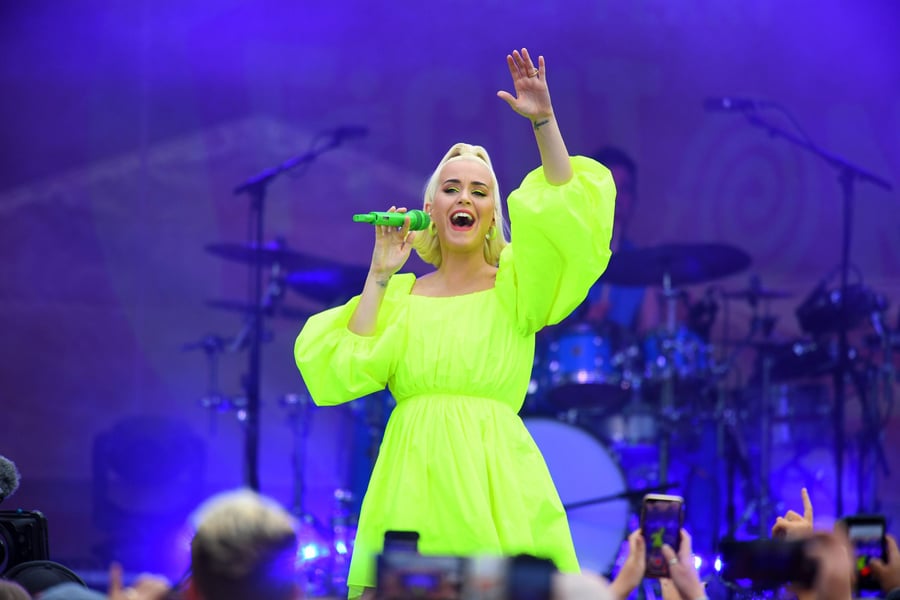Katy Perry has won her appeal in the ongoing plagiarism dispute over her 2013 hit “Dark Horse.”
In 2014, the pop star was sued by the Christian rapper Flame (real name Marcus Gray), who claimed Perry and others pulled an eight-note musical phrase (known as an ostinato) from his song “Joyful Noise.” Last July, a jury found in favor of Flame and awarded him $2.8 million in damages.
In a new decision, however, U.S. District Judge Christina A. Snyder ruled that none of the individual elements that comprised the ostinato in “Joyful Noise” are “independently protectable” under copyright law, nor is the specific combination of them in his song.
“It is undisputed in this case, even viewing the evidence in the light most favorable to plaintiffs, that the signature elements of the eight-note ostinato in ‘Joyful Noise’… is not a particularly unique or rare combination, even in its deployment as an ostinato,” Snyder wrote. “[P]rior compositions, including prior works composed by the parties, as well as what all agree is a separate non-infringing ostinato in ‘Dark Horse,’ all contain similar elements.”
Per The Associated Press, Gray plans to appeal the latest ruling, with his lawyer Michael. A. Kahn saying, “When the jurors returned a unanimous verdict of infringement, I cautioned my clients that we had only finished Round 11 of a 15-round match and that the next round would take place in the court of appeals. We believe the jury was right and will do our best to restore their verdict on appeal.”
A lawyer for Perry, Christine Lepera, praised the ruling (via Variety): “In a well reasoned and methodical decision, the court properly vacated the jury verdict, finding that ‘Dark Horse’ does not infringe ‘Joyful Noise,’ as a matter of law. This an important victory for music creators and the music industry, recognizing that music building blocks cannot be monopolized. The creators of ‘Dark Horse’ stand vindicated.”
The decision in favor of Perry marks the second big copyright win for artists this month, and potentially signals a reversal in how these cases will be tried and judged following the landmark “Blurred Lines” decision. Last week, the Ninth Circuit Court of Appeals upheld a 2016 decision that Led Zeppelin’s “Stairway to Heaven” did not infringe on the band Spirit’s 1968 instrumental track, “Taurus.” In doing so, the court upended a long-standing copyright precedent regarding the extent to which access to a song can be used to prove infringement or plagiarism.
Love Music?
Get your daily dose of everything happening in Australian/New Zealand music and globally.



































